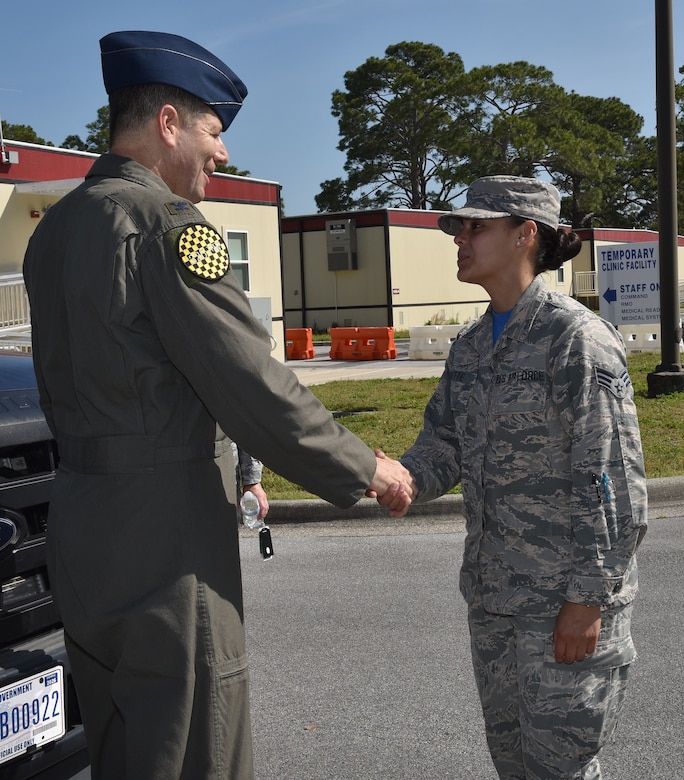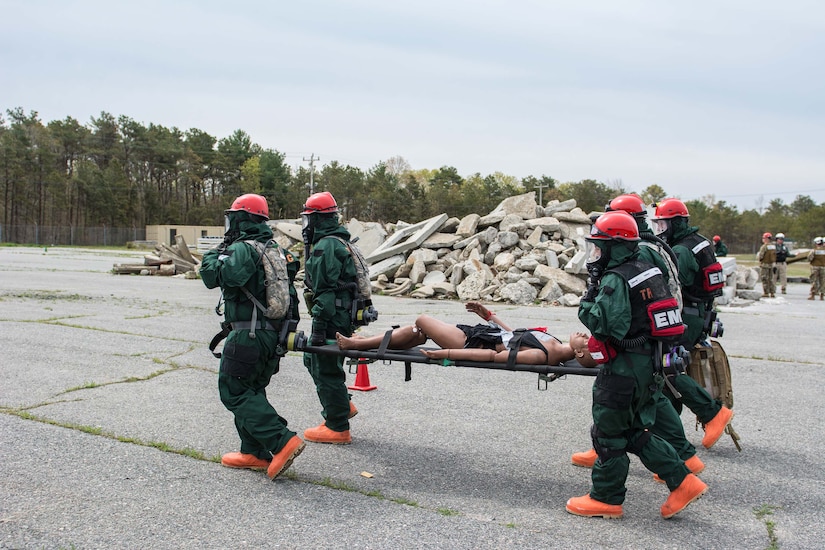By Air Force Airman 1st Class Delaney Gonzales, 325th
Fighter Wing
TYNDALL AIR FORCE BASE, Fla. -- After college graduation,
Dannyel Butte worked as an admissions counselor. However, she wanted a more
fulfilling career, something that made her feel like she was a part of a team.
After waiting nearly two years for a spot in a police
academy, she decided to pursue other options. At age 24, her journey landed her
in an Air Force recruiter’s office.
Now she’s an Air Force senior airman, and her life has
changed.
Selfless Service
“My perspective on life has transformed from not only
myself, but to service,” said Butte, who serves as a bioenvironmental
engineering journeyman with the 325th Aerospace Medicine Squadron here.
“My goal is to do everything I can to better myself in order
to be an effective member in the United States Air Force,” she said.
Butte has worked in the bioenvironmental engineering field
for more than two years. Bioenvironmental engineering airmen help reduce
workplace health concerns throughout the Air Force. They help to establish the
proper personal protective equipment that should be worn, develop safety
procedures, and ensure Air Force facilities are in compliance with Occupational
Safety and Health Administration standards.
Butte said she puts her best foot forward when accomplishing
demanding tasks.
Thrives on Responsibility
“I would say you get a lot of responsibility early on in the
bio [environmental engineering] career field,” said Butte, who hails from
Findlay, Ohio. “This pushed me to live up to that and achieve more than what is
expected of me. I’m motivated by work, so if work presents itself, I want to
perform my best.”
Although Butte has served in the Air Force for less than
three years, she has accomplished much.
She has been awarded one wing and several group quarterly
awards. Butte also received a merit promotion to senior airman’s rank in 2017.
“Butte is by far one of the sharpest airmen I know and she
will continue to strive for excellence,” said Air Force Senior Airman Gabriel
Albano, Butte’s supervisor.
As a result of her outstanding performance, Butte was
selected to participate in the Airman Shadow program here, whereby airmen
demonstrate their job duties to the base commander.
‘She Constantly Takes the Initiative’
“Butte was my first choice for the Airman Shadow program,”
Albano said. “She constantly takes the initiative to become proficient in her
job duties, applies her expertise to the programs she manages, and mentors
others on- and off-duty.”
One of her career accomplishments helped improve the Air
Force by creating safer work centers for airmen. She led the Department of
Defense’s first rapid airfield repair process evaluation, where she identified
a carcinogen or cancer-causing agent.
“I ask myself, ‘What can we do to protect them?’” Butte
said.









